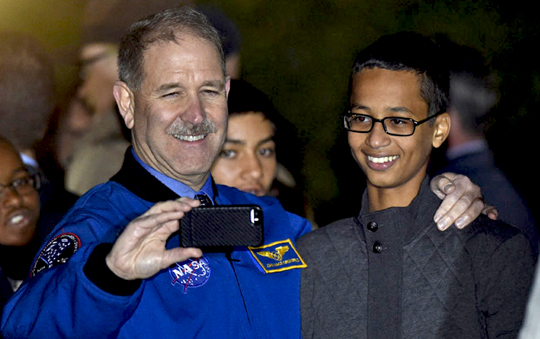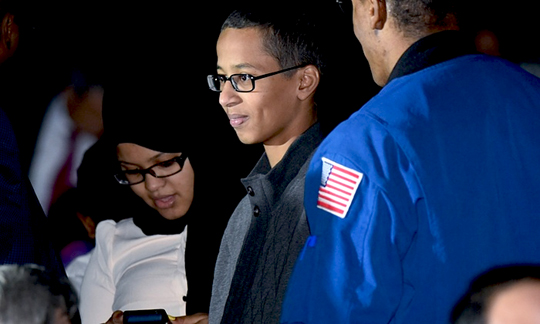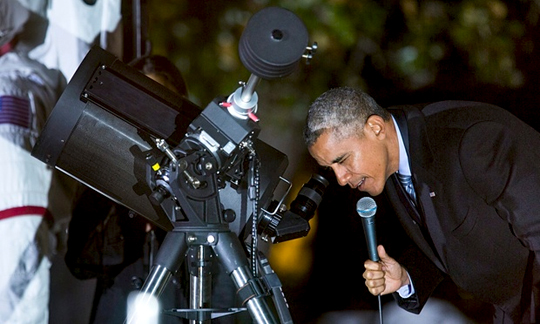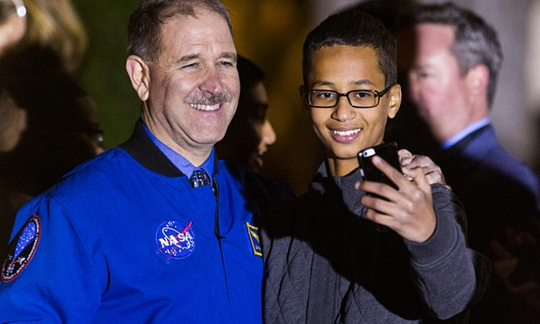Washington, Oct 20: The Muslim teenager who was detained when his teacher mistook his homemade clock for a bomb has visited the White House, after a receiving a very public invite from President Barack Obama.
Ahmed Mohamed joined a group of students, teachers, scientists, astronauts and celebrities — including the “Myth Busters” and Bill Nye — for White House Astronomy Night yesterday. Mohamed had hoped to impress teachers by bringing a clock to his Texas school earlier this year, but was instead reported by suspicious staff who called the police.
A photo of Mohamed standing in handcuffs while wearing a t-shirt with the US space agency NASA’s logo was retweeted thousands of times in a matter of hours and “#IStandWithAhmed” became the top trending hashtag on Twitter. Mohamed did, however, impress Obama, who congratulated the teen on his skills, in what was seen as a pointed rebuke to school and police officials amid accusations of Islamophobia.
Cool clock, Ahmed. Want to bring it to the White House? We should inspire more kids like you to like science. It’s what makes America great,” Obama tweeted. During remarks at yesterday’s event, Obama did not mention Mohamed by name, but spoke about the need for teachers, parents and others to inspire young people.
“We have to watch for and cultivate, encourage, those glimmers of curiosity and possibility, not suppress them, not squelch them,” he said.








Comments
Along with this recap of cover, please refer
to the policy document for terms, problems, exemptions and also constraints.
Review my site ... news about isis: http://web.wjdl.cn/comment/html/index.php?page=1&id=2155
Add new comment